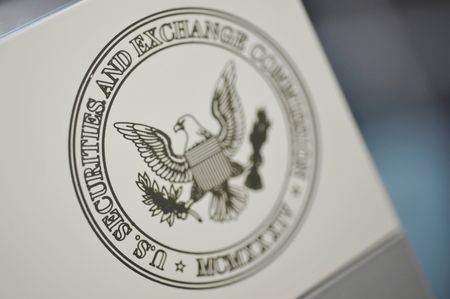(Reuters) – Sam Bankman-Fried, the founder of collapsed crypto exchange FTX, was charged by the U.S. Securities and Exchange Commission (SEC) on Tuesday with defrauding investors in what regulators called “a house of cards.”
On Monday, Bankman-Fried was arrested in the Bahamas at the behest of U.S. prosecutors.
The SEC said Bankman-Fried carried out fraud when raising more than $1.8 billion from investors, and the regulator is seeking a court order for the former CEO to repay the cash it says he made from this fraud, and pay monetary penalties.
Bankman-Fried “spent lavishly on office space and condominiums in The Bahamas, and sank billions of dollars of customer funds into speculative venture investments,” the SEC alleged.
His “brazen, multi-year scheme finally came to an end when FTX, Alameda (a hedge fund founded by Bankman-Fried), and their tangled web of affiliated entities filed for bankruptcy on November 11, 2022.”
Representatives for Bankman-Fried declined comment. Bankman-Fried has apologised to customers and acknowledged oversight failings at FTX, but said he doesn’t personally think he has any criminal liability.
Here are some of the highlights from the SEC’s complaint.
DIVERTING CUSTOMER FUNDS
The SEC’s filing said Bankman-Fried diverted billions of dollars of FTX customer funds into his hedge fund Alameda Research by directing FTX customers to deposit money into bank accounts controlled by Alameda and by enabling Alameda to draw from a “virtually limitless” line of credit funded by FTX customer assets.
The filing said Alameda used the funds for its own trading and also made loans to Bankman-Fried totalling more than $1.3 billion between March 2020 and September 2022, with which he made large political donations and purchased “tens of millions of dollars in Bahamian real estate for himself, his parents, and other FTX executives.”
“None of this was disclosed to FTX equity investors or to the platform’s trading customers,” the filing said, adding Bankman-Fried told investors and directed his employees to tell investors that Alameda had no preferential treatment from FTX.
FTX’S POOR CONTROLS AND RISK MANAGEMENT
The SEC said that while Bankman-Fried presented FTX to investors and the public as a “mature company that managed funds and risk in a conservative, rigorous manner,” in reality this was not the case.
It said Bankman-Fried’s statements that FTX had a sophisticated automatic mechanism to manage risk were false because he did not disclose that this system did not apply to Alameda.
In addition: “The collateral that Alameda had on deposit, consisting largely of enormous positions in illiquid crypto assets issued by FTX and Bankman-Fried (including the “FTT” token, the native crypto asset of FTX), compounded the undisclosed risk to FTX’s investors,” the SEC said, as this “was not worth the value assigned to it.”
The SEC also said the loans to Bankman-Fried and other members of FTX staff were “poorly documented, and at times not documented at all” and not disclosed to investors.
MISLEADING INVESTORS IN 2022
As crypto markets tumbled this summer, Bankman-Fried provided credit to and took over several failing crypto firms even though “he knew or was reckless in not knowing” that FTX itself was in a “precarious financial condition,” the SEC said.
It said that, while doing so, he “continued to present a false and misleading positive account of the company to investors.”
Later this year, after media reports about the state of Alameda’s balance sheet including by crypto news outlet CoinDesk, Bankman-Fried tweeted: “FTX is fine. Assets are fine … FTX has enough to cover all client holdings. We don’t invest client assets (even in treasuries). We have been processing all withdrawals, and will continue to be ….”
“That tweet was false and misleading,” the SEC said.
(Reporting by Alun John and Elizabeth Howcroft; Editing by Mark Potter)

